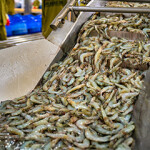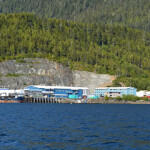FishWise coordinates new global alliance aimed at combating illegal fishing via supply chain revisions
The United States Agency for International Development (USAID), the Walton Family Foundation, the David and Lucile Packard Foundation, the Gordon and Betty Moore Foundation and FishWise have come together in a new alliance aimed at combating illegal fishing and strengthening sustainable fisheries management.
The new global initiative, the Seafood Alliance for Legality and Traceability (SALT), will promote knowledge exchanges and actions surrounding legal and sustainable fisheries via improved transparency in seafood supply chains, alliance coordinator FishWise said in a news release.
To address the challenge of illegal and unreported fishing – which generates annual illicit profits of USD 15 to 36 billion (EUR 12 to 30 billion) – SALT “will bring together the seafood industry, governments and nongovernmental organizations to accelerate learning and collaborate on innovative solutions for legal and sustainable seafood,” the alliance explained.
Embracing traceability is at the heart of SALT’s mission, and will help business and governments ensure that seafood is legally sourced and comes from sustainably managed fisheries.
“Traceability is a critical component of an efficient, modern and sustainable seafood industry,” Walton Family Foundation Oceans Program Officer Teresa Ish said. “This is an exciting collaboration that we hope will incentivize and support seafood companies to implement best practices, more effectively self-regulate and play a role in stronger fisheries management.”
Over the next year, SALT will design and iron out its approach to meet the needs of key stakeholder group, and will look to “provide the collaborative space for these groups to exchange information and expertise," according to a press release. Through the alliance, the industry will learn about the value of traceability for improving supply chains, reducing business risk, complying with import requirements and contributing to sustainable fisheries, while seafood-producing countries learn how to leverage traceability to enhance their fisheries’ management protocols and practices.
Meanwhile, seafood-consuming countries “will have opportunities to share information about their seafood import regulations, leading to enhanced compliance and strengthened demand for legal seafood,” according to SALT.
“Seafood is the most widely traded food commodity in the world. The global nature of the industry poses unique challenges to sustainability,” FishWise CEO Tobias Aguirre said. “If we can more effectively document and trace our seafood and use that information to empower fisheries managers, we will be one big step closer to long-term sustainability of the industry.”
SALT is encouraging those interested in becoming stakeholders for the alliance to apply at http://www.fishwise.org/salt.
“Poor transparency and supply chain traceability are major impediments to achieving our goals around ending illegal fishing,” said Meg Caldwell, the deputy director for oceans at the David and Lucile Packard Foundation. “Our hope is that this learning network will enable better information to improve seafood transparency and traceability policies and practices, which are needed as we work together toward responsible and evidence-based marine resource management around the world.”






Share